La próxima temporada de la Scala
2014~2015 Season
Fidelio, which will be on stage on 7 December 2014, embodies the last commitment of Daniel Barenboim as Music Director and opens a new season of change for our Opera House. Alexander Pereira was appointed as the new General Manager in September 2014 and from 1 January 2015 Riccardo Chailly will take up the position as Principal Conductor. Furthermore, the Foundation was granted self-governing status by the Ministry of Heritage and Cultural Activities, a long awaited decision that sets the basis on which to build the development of the Opera House in years to come. Hence, a deeply renewed La Scala meets the challenge of Expo 2015 with an unprecedented season marked by a net increase in the number of new productions of operas (8) as well as ballet. Starting from 1 May 2015, the day on which Riccardo Chailly will conduct Puccini’s Turandot with the finale by Luciano Berio to mark the opening of Expo 2015, La Scala will be open every evening for six months with an extraordinary programme that includes 122 opera and 62 ballet performances as well as 86 concerts.
Opera Productions
Fidelio Ludwig van Beethoven – from 7 December 2014
New production
Fidelio by Ludwig van Beethoven opens the new Season, Daniel Barenboim’s last commitment as Music Director. He closes in this way the majestic ‘Beethoven’ series that over the years has included the Symphonies, Concerts as both conductor and pianist and the complete Sonatas as pianist. Expectations are high for the work of the British director Deborah Warner, who enchanted the audience with her marvellous staging of Death in Venice by Benjamin Britten a few years ago. The vocal challenges of the masterpiece are entrusted a cast that includes acclaimed names from the international opera scene. The production is part of the “Milano Cuore d’Europa” programme promoted by the City-of-Milan to mark the European semester of Italian Presidency. No other piece of music could have better represented European values and culture.
Die Soldaten Bernd Alois Zimmermann – from 17 January 2015
New production – a coproduction with Salzburg Festival
An ultramodern 18th century theatrical piece that became a significant milestone for music modernism in the 20th century. It is an opera that is still very much alive: in the last fifty years, Die Soldaten has been staged many times since it premiered in 1965. In the legendary text by Jakob Lenz (1751-92), set in pre-revolutionary France traumatised by war, the delusion of social emancipation and the denouncement of male irresponsibility are interwoven with the usual bloodshed and suffering endured by all, men and women alike. The eclectic genius of Bernd Alois Zimmermann (1918-70) blends together jazz and electronic music, recitatives and modernist complexity to describe through powerful and emotionally charged music the mental confusion of the protagonists as well as the coming together of many catastrophic, parallel stories. The impressive staging by Alvis Hermanis has a powerful impact because of the imagery, symbolism and human degradation. The production has already been acclaimed audiences in Salzburg in a co-production with La Scala. Laura Aikin is back on stage as part of an exceptional cast that includes the comeback of Gabriela Beňačková.
L’incoronazione di Poppea Claudio Monteverdi – from 1 February 2015
New production – a coproduction with Opéra National de Paris
Robert Wilson, an icon of the contemporary scene, brings back to La Scala his staging consisting of stylisations, supreme elegance but also irony, tenderness and sharp lucidity. The underworld of Hades that opens up with bands of darkness in the L’Orfeo and the archaic stylisations of the Il ritorno d’Ulisse in Patria are still vivid images in our eyes. Robert Wilson completes Monteverdi’s trilogy for La Scala with the last opera: L’incoronazione di Poppea, composed in 1642, for one of the first public theatres of Venice right at the dawn of lyrical theatre. In order to attract large audiences, the brilliant librettist and dissident Gian Francesco Busenello wrote a story about sex and power that is very similar to present-day items of popular fiction like those that attract huge audiences. In the history of music, it is the first ‘historic’ work that deals with characters that really lived (Nero, Seneca) using them to represent eternal themes in the human condition: a gold-digger that uses her seduction skills to lure a powerful man away from his wife and noble advisors to be crowned empress. Once again, Rinaldo Alessandrini is back on the podium to take on this opera that needed mega reconstruction as Monteverdi left only the manuscript of the score, with bare lines of singing but without harmonies or instrumentation apart from a few refrains.
Aida Giuseppe Verdi – from 15 February 2015
New production
Suspended between gigantism and solitude, dazzling exoticism and a seductive and ultramodern instrumentation, Aida is a pivotal title in the programme of any renowned opera house. At La Scala, after the ostentatious production by Franco Zeffirelli on 7 December 2006 and the restaging of the historic production, once again by Franco Zeffirelli with the sets skilfully painted by Lila De Nobili, the sublime archaeological fable without a happy ending is presented in the brand-new version by a real master of contemporary theatre, namely Peter Stein. The Director, German-born but Italian by adoption, who is also a trained violinist, has promised “eine ganz intime Aida”, a very intimate Aida. For the quintessential opera Zubin Mehta returns to the podium of La Scala, kindly replacing the great Lorin Maazel, who recently passed away.
Lucio Silla Wolfgang Amadeus Mozart – from 26 February 2015
New production – a coproduction with Mozarteum Foundation and Salzburg Festival
It is together with Mitridate, Re di Ponto and Ascanio in Alba one of the three opere serie or melodramas composed by Mozart for Milan. The Austrian genius was sixteen when he composed this delightful masterpiece of bel canto dedicated to the general and dictator of Ancient Rome. Lucio Silla premiered on 26 December 1772, when Mozart was almost seventeen. It was the third of his operas to be staged at the Regio Ducal Theatre (burnt to the ground three years later after an arson attack), which at the time was located in the courtyard of the Royal Palace (La Scala subsequently rose from its ashes, fortunately in stonework…). The staging is by Marshall Pynkoski, the Canadian director specialized in eighteenth-century operas with particular insights into Baroque dance, drama and mime. The star-studded cast includes Rolando Villazón, Marianne Crebassa and Lenneke Ruiten – the opera demands no less – but the debut at La Scala of Marc Minkowski is also cause for much excitement.
Carmen Georges Bizet – from 22 March 2015
Teatro alla Scala production
Emma Dante’s production that so shocked part of the audience on its opening night in 2009 is now an acclaimed classic and continuously restaged. A free, secular and defiant Carmen is stuck in a Mediterranean world of grey and dusty neglect, spruced up with church ornaments, votive offerings and blood-red gashes. Carmen is in her youth, untainted by social hypocrisies, a pure martyr, so nearly angelic in spite of her raging sensuality. Elīna Garanča and José Cura in the leads, then revisited by Anita Rachvelishvili (who had just graduated from the Accademia Teatro alla Scala when she made her debut to great acclaim in this production) and Francesco Meli. Massimo Zanetti, who wields the baton, is a world-renowned opera specialist.
Turandot Giacomo Puccini – from 1 May 2015
New production
Riccardo Chailly, new Principal Director of La Scala and whose performances of Puccini’s music drama are a point of reference, opens the Expo period with this work composed for La Scala and loved by all audiences. This is a way of announcing some of the most likely items of his music programme: paying tribute to Italian opera and especially Puccini, giving prominence to contemporary music and choosing productions that are modern but at the same time respecting the original intentions of the authors. Puccini’s last opera, staged posthumously and without a finale in a world premiere at La Scala, returns in the version completed by Luciano Berio, another great contemporary Italian composer. This version was played for the first time under the baton of Riccardo Chailly. The performance, directed by Nikolaus Lehnhoff, has stunning figurative elegance, is well designed and stylized in its movements and costumes as well as flooded with vibrant reds and majestic purples. The evil princess from Beijing is Nina Stemme, who won over audiences at La Scala in Wagner’s Ring, but there are high expectations for Liù played by Maria Agresta and, of course, for the “Nessun dorma” by Aleksandrs Antonenko.
CO2 Giorgio Battistelli – from 16 May 2015
New production
In the year the city of Milan dedicates its Universal Exposition to the resources of the planet, La Scala commissions an exposé opera on the future of an already “terminally ill” Earth. The poor poisoned planet is described through the prophecies of a wise climatologist who nobody listens to. The performance – with dances, choruses, videos and symphonic passages – imagines the progressive destruction of the world starting right from its creation: Adam, Eve, the snake and the loss of the Garden of Eden. The inevitable death of this barren nature outrages Gaia, the ancient goddess of the Earth. The musical architecture by one of the most acclaimed Italian contemporary composers Giorgio Battistelli evokes grief and rebellion and gives a global voice to many languages, some alive others dead. The Kyoto conference, the coastal areas devastated by Tsunamis, the folly of transporting food from one part of the planet to the other and the dumb indifference of irresponsible people confronted with global warming all act as backdrops. The choreography by Marco Berriel complements the staging created by the genius of the director Robert Carsen, who has always been very sensitive to environmental issues, as those who have seen his Candide by Leonard Bernstein will recall. The cast includes Anthony Michaels-Moore, Alain Coulombe, Pumeza Matshikizia, Jennider Johnston and David QD Lee.
Lucia di Lammermoor Gaetano Donizetti – from 28 May 2015
Metropolitan Opera, New York, staging
The presence alone of Diana Damru – who debuted at La Scala in the Europa riconosciuta under the baton of Riccardo Muti to mark the reopening of the opera house, not to mention her highly acclaimed Violetta last year – is enough justification for appearing on the bill. Vittorio Grigolo already performed on stage last season, but hearing him again with his new partner will be exhilarating. Elena Mosuc, well known to the audiences, will be on stage in some performances. The staging directed by Mary Zimmermann, who drew inspiration from the true accounts that inspired Walter Scott’s novel, filled with hallucinations and spectres, has earned wide praised. The pictorial elegance of the scenes admirably accompanies the drama of the madness of a mind damaged by psychological abuse. The deformed world of Lucia’s pain, and of her great passion so brutally thwarted, is conveyed to the audience through a visual display that perfectly matches the passion of the bel canto. Stefano Ranzani returns to the podium, having already conducted Lucia at La Scala in two successful productions in the Nineties.
Cavalleria rusticana Mascagni / Pagliacci Leoncavallo – from 12 June 2015
Teatro alla Scala production
New productions at La Scala that have been especially well received by audiences have included the pairing of two celebrated one-act operas revisited with staging by director Mario Martone. Modern and ancient are jumbled together in the setting of Cavalleria, with the brothel, the colossal tree trunk sawn at its base, the rows of chairs in a church, a place of stares and slanderous whispers. Equally poignant is the transposition of Pagliacci into a squalid modern suburb, an encampment of vagrants and carnies at the on the verge by a highway ramp, perhaps a dead end. This revival of the successful show takes advantage of an exceptionally talented cast of singers with Jonas Kaufmann, who will debut in the role of Turiddu, alongside Elīna Garanča in Cavalleria and Fiorenza Cedolins and Marco Berti in Pagliacci. The conductor is the internationally renowned specialist of Italian opera, Carlo Rizzi.
Tosca Giacomo Puccini – from 22 June 2015
Teatro alla Scala production – in coproduction with the Metropolitan Opera, New York and the Bayerische Staatsoper, Munich
The elegant production by Luc Bondy with its eerie shadows, has always met with ovations from audiences ever since it began in 2009. The scenery by Richard Peduzzi strips the Rome of Puccini’s masterpiece of some of its glitz, but it expressively characterizes its ecclesiastical-sensual hue. The French mezzosoprano Béatrice Uria Monzon will introduce Milan to new role from her vast repertoire alongside the tenor Fabio Sartori in the role of Cavaradossi. The triangle, doomed to a tragic fate, is completed by Želiko Lučić’s experienced Baron Scarpia. The conductor is Carlo Rizzi.
Otello Gioachino Rossini – from 4 July 2015
New production
Before Verdi’s version, Italian theatres of the past had staged Rossini’s Otello for decades, which was later revived only occasionally, even though it was still dear to disenchanted and anti-Romantic artists such as Alberto Savinio and Giorgio de Chirico. It has not been staged at La Scala since 1870. The rare sightings of the title on theatre bills in the 20th century could have been due to both the vocal challenges of the bel canto demanded by this extraordinary opera seria and in particular the difficulty of bringing together three great tenors as required by the score originally conceived for the legendary tenors, Giovanni David and Andrea Nozzari. However, this production will see an awe-inspiring trio on stage: Juan Diego Flórez, Gregory Kunde and Edgardo Rocha who will challenge each other to the most daring and spectacular trills. The role of Desdemona, which Rossini composed for his wife-to-be Isabella Colbran, will come back to life through the voice of Olga Peretyatko, acclaimed in last season’s The Tsar’s Wife. The sets and costumes for this classic masterpiece are the work of Anselm Kiefer, who, of all the contemporary artists, is doubtlessly the most sensitive to not only the aesthetics of music drama but also to the general preservation of elements from the European cultural tradition in present-day imagery.
Il barbiere di Siviglia Gioachino Rossini – from 27 July 2015
Teatro alla Scala production
Here we have the most-performed Italian opera in the world. Before Rossini, nobody had managed to write operas that flowed with such pace. And the fiendish rhythm, the amused clockwork madness we would all love to experience, and the swirling verbalizations of crazed singer-marionettes, are exalted even more by immobile concertatos of wonder. The success of the celebrated production by Jean-Pierre Ponnelle, which has enchanted audiences for over 40 years, can be ascribed to the fidelity to the music, making it seem as though the director were the choreographer of a ballet cantanta. Massimo Zanetti conducts a cast of great maestros such as Leo Nucci and Ruggero Raimondi who are sharing the stage with young talents from the Accademia Teatro alla Scala.
La bohème Giacomo Puccini – from 19 August 2015
Teatro alla Scala production
Created in 1963, the celebrated version by Franco Zeffirelli is one of the oldest productions by La Scala since World War II. At the time, it was conducted by Herbert von Karajan with Mirella Freni and Gianni Raimondi on stage. After that came Luciano Pavarotti with Carlos Kleiber on the podium. Counting the performances during this summer season, it will have been on stage 240 times, at home and on tour. During the Expo period, the most-seen La bohème in the world will take on a South American flavour, conducted by Gustavo Dudamel leading the Orquesta Sinfónica and Coral Nacional Juvenil Simón Bolívar. The presence in the pit of the Venezuelan youth orchestra brings to an end the well-structured Progetto “El Sistema”, a collaboration programme involving a network of orchestras created by José Antonio Abreu that is at the centre of the project Festival delle Orchestre Internazionali per Expo. Top-class voices include Maria Agresta and Vittorio Grigolo, and then Ailyn Perez and Ramón Vargas, will move audiences once again, with the poverty and misery all around, except in emotions of the characters.
L’elisir d’amore Gaetano Donizetti – from 18 September 2015
Teatro alla Scala production
Listened to it attentively, it is an opera buffa; full of good cheer and humour, but with a lot of passion and a pinch of melancholic disenchantment. In no other comic opera do you find the pathos of passages such as “Una furtiva lagrima”. It comes across as a simple tale of common sense, but it is based on a libretto by Felice Romani who combines great poetic mastery with the ruthless clarity of an essay on anthropology. Reason makes fun of old wives’ tales, and only a fool can believe in love potions. In fact, Nemorino is the only one who believes in them. But in the end, true passion wins over deception. Adina recognizes Nemorino’s true perseverance and rewards him with her favour. Or perhaps has she just found out about his unexpected wealth? We are left in doubt. A well-known production with a proven track record, with sets and costumes designed with stunning finesse by painter and illustrator Tullio Pericoli. The staging is entrusted to the Grischa Asagaroff from Germany, who will need to disentangle the web of love, laughter and cruelty in social interactions. After a long absence from the podium of La Scala, Nello Santi is back with his valuable and in depth grasp of Italian opera.
Falstaff Giuseppe Verdi – from 14 October 2015
Teatro alla Scala production – in coproduction with the Royal Opera House Covent Garden, London, the Canadian Opera Company, Toronto, the Metropolitan Opera, New York, and the Nederlandse Opera Amsterdam
Daniele Gatti’s return to the podium of La Scala in a production of one of Verdi’s masterpieces has an element of festive joy – and rightly so! Even if the production was conceived before Expo on feeding the planet, it will be remembered as the Falstaff in which it is always time to party and always time to eat. In 2013 it even featured a horse cheerfully munching hay on stage… The director Robert Carsen has spruced up the obese Shakespearian protagonist, in contrast to a world of shabby and blundering bourgeois. His Falstaff is an impoverished aristocrat, who, however, retains some charm in his manner, a man who is perhaps bizarre but not ridiculous. And we will all participate in the joie de vivre expressed by the aging Verdi, turning back in time to his youth by creating a ‘funny’ and melancholic comedy of manners for La Scala. He was almost eighty when he created this piece, which still represents a highly entertaining acme of artistic mastery of all times.
Wozzeck Alban Berg – from 29 October 2015
Teatro alla Scala production
One of the most acclaimed productions by director Jürgen Flimm is back on the bill at La Scala. He will personally reassemble the historic production created with Giuseppe Sinopoli in 1997. The cast includes Michael Volle and Roman Trekel in the leads, Ricarda Merbeth debuts as Marie, Roberto Saccà in the role of Tambourmajor while Wolfgang Ablinger-Sperrhacke plays Hauptmann. The conductor Ingo Metzmacher completes an outstanding cast for this masterpiece of music and drama of the 20th century.
Gala evening
Edita Gruberova sings Donizetti – from 23 July 2015
A queen of bel canto for three Queens of the British Isles and three royal beheadings that conclude the “Tudor Trilogy” of three passionate operas by Donizetti. The first, the Catholic and much talked-about Mary Stuart, widow of the King of France and Queen of Scotland, was imprisoned for twenty years and finally executed by her cousin, Elizabeth I. Donizetti entitled her noble finale “Aria del supplizio” in which she forgives all. Then Anna Boleyn, the second wife of Henry VIII, beheaded because the king wished to marry again. Finally, Henry VIII and Anna Boleyn’s daughter, Elizabeth I, who torn between conflicting passions had to hand over her lover to the executioner and then grant him her pardon only after the sentence had been carried out. Proud and sometimes scornful, they are women in power, who are torn between doubts, passions and raison d’état. Donizetti’s melodrama has animated their voices with vehement trills and the divine perfection of Edita Gruberova has often raised to white heat the extreme moments of those tragic destinies, here reunited.
Concerts
The Symphonic Concert Season of the Teatro alla Scala opened on 29 and 30 September 2014 with Die Schöpfung by Franz Joseph Haydn conducted by Zubin Mehta with the Coro del Teatro alla Scala conducted by Bruno Casoni; this was followed by a concert which saw Daniel Barenboim as conductor and soloist (12, 14 and 15 November 2014).
The 2015 programme includes concerts conducted by Daniel Harding (23, 24 and 26 January 2015, with pianist Rudolf Buchbinder), Georges Prêtre (16, 18 and 21 March 2015) and Cristoph von Dohnány (13, 14 and 15 April 2015, with baritone Thomas Hampson).
The absolute novelty for this season is the inclusion in the programme of concerts given by three extraordinary orchestras from overseas, one for each subscription series: Riccardo Chailly with the Gewandhausorchester of Leipzig on 16 February 2015 with violinist Julian Rachlin; Vladimir Jurowski with the London Philharmonic Orchestra on 7 September 2015 with pianist Daniil Trifonov; and Paavo Järvi with the Orchestre de Paris with pianist Hélène Grimaud on 11 September 2015.
The ‘Festival delle Orchestre Internazionali per Expo’ will bring to Milan the most renowned Italian and international orchestras from 2 May to 27 October 2015: the opening with the Berliner Philharmoniker and Sir Simon Rattle will be followed by the Wiener Philharmoniker conducted by Mariss Jansons, mezzo-soprano Bernarda Fink and the Singverein der Gesellschaft der Musikfreunde in Wien and the Coro di Voci Bianche dell’Accademia Teatro alla Scala on 25 and 26 June 2015. The Filarmonica della Scala conducted by John Eliot Gardiner, pianist Kristian Bazuidenhout and soprano Hanna-Elisabeth Müller will take the stage on 19 July 2015 followed by the Budapest Festival Orchestra conducted by Iván Fischer, pianist Yefim Bronfman and soprano Miah Persson on 1 August 2015. Then we have the Boston Symphony Orchestra conducted by Andris Nelsons on 1 September 2015; the Israel Philharmonic Orchestra conducted by Zubin Mehta on 12 September 2015; the Orchestra
dell’Accademia Nazionale di Santa Cecilia conducted by Sir Antonio Pappano on 11 October 2015; the Concentus Musicus Wien conducted by Nikolaus Harnoncourt on 15 October 2015; the Cleveland Orchestra conducted by Franz Welser-Möst and pianist Radu Lupu on 18 October 2015; and to conclude the series the Barocchisti conducted by Diego Fasolis, mezzo-soprano Cecilia Bartoli 27 October 2015.
In the middle of the concert series, from 21 August to 4 September 2014, there is the “Progetto El Sistema” that will bring to Milan for the first time many orchestras that belong to the impressive network of youth orchestras developed by José Antonio Abreu.
The programme includes concerts given by the Orquesta Sinfónica Nacional Infantil de Venezuela with Riccardo Chailly on 21 and 23 August 2015; the Sinfónica Juvenil “Teresa Carreño” with Christian Vásquez on 24 August 2015; the Sinfónica Juvenil de Caracas with Dietrich Paredes on 27 August 2015; the Orquesta Sinfónica Simón Bolívar with Gustavo Dudamel on 30 August and on 3 and 4 September 2015 the orchestra is joined by the Coro Nacional Juvenil Simón Bolívar and soprano Genia Kühmeier, tenor Brian Hymel and bass George Zeppenfeld.
The 2014/15-season of Recitals includes once again great performers: Ian Bostridge (accompanied at the piano by the composer Thomas Adès), Diana Damrau, René Pape, Anja Harteros, Daniela Barcellona, Ramón Vargas and Christian Gerhaher.
In 2015, the series ‘Concerti straordinari’ will bring to the stage of La Scala the Filarmonica della Scala conducted by Zubin Mehta and the Orchestra della Scala with a number of extraordinary soloists: pianist Maurizio Pollini, baritone Leo Nucci, tenor José Carreras and baritone Thomas Hampson together with Martin Grubinger and The New Percussive Planet Ensemble.
Furthermore, La Scala renews its commitment to other Italian Music Institutions: the Festival MITO, the engagements with the Festival Milano Music and the Orchestra Sinfonica di Milano Giuseppe Verdi.
The series Sunday at la Scala includes five matinee performances dedicated to families (La Scala in famiglia) and free entry for those under 18. Ensembles of musicians of La Scala and the ‘Coro di Voci Bianche dell’Accademia Teatro alla Scala’ conducted by Bruno Casoni will take the stage.
Supported by guest artists, the soloists of the Orchestra del Teatro alla Scala will guide the public through the listening of masterpieces taken from a chamber music repertoire from all times. The events are organised by the Cultural Promotions Office within the project: La Scala invites the young and the over 65s.
La Scala will also continue the series of Academy Concerts in the “Arturo Toscanini” Boxes Foyer. Performers include young soloists of the Academy of Lyric Opera and chamber music ensembles and the ensembles of the Academy itself, among which the ensemble “Giorgio Bernasconi” stands out for its contemporary music repertoire. Finally, la Scala will host the institutional concert of the Academy, with the students of the course for opera singers accompanied by the orchestra of the Accademia, on 7 June 2015.
Great Operas for Children
The project “Great Operas for Children”, kick-started this season, envisages the performance, at La Scala every year, of a well-known opera reinterpreted and adapted to satisfy the curiosity of children. The first production is La Cenerentola by Gioachino Rossini and includes eight performances open to the public until 17 May 2015 and another eight performances for schools only.
The adaptation of Rossini’s music for a 12-piece orchestra is entrusted to Alexander Krampe. Each performance lasts around an hour to make it suitable for very young children. Maxime Pascal will conduct the orchestra and young opera singers from the Academy. Ulrich Peter will be in charge of the staging, while Luigi Perego will create the sets and Dorothea Nicolai the costumes. Two actors will guide the young audience through the opera. Antonio Albanese and Michele Nani will take turns as narrator.
Ballet productions
The Scala étoiles, important international guests, great choreographers of today and of all time, and acclaimed batons. On the stage, in the pit and on the playbill, this Ballet Season brings continuity and news; the most evident of which is unquestionably the increase in the amount of new productions, which now number three: half of the titles in the playbill are new for La Scala, presented by internationally revered choreographers whose creations are part of the repertoire of the leading companies in the world. With seven titles, plus a show by the Academy, the 2014-15 programme will see the return of The Nutcracker and Sleeping Beauty to the stage after several years, training the spotlight on Tchaikovsky, to whom La Scala is paying tribute in 2015 at 175 years from his birth with two of his most beloved classics of all time, but in two productions, choreographed by Nacho Duato and Alexei Ratmansky, who are joining La Scala’s ballet repertoire for the first time. So, too, will Cello Suites by Heinz Spoerli with music by Bach feature for the first time. Besides these new titles, there will also be Giselle, L’histoire de Manon and, to mark the occasion of the Expo, Excelsior and Gala des Étoiles. And a further distinguishing trait is the attention lavished on the musical side: The Nutcracker and Sleeping Beauty will bring an eminent name from the great Russian school to the podium, Vladimir Fedoseyev, who will be followed by Patrick Fournillier for Giselle and David Coleman for Excelsior, Gala des Étoiles and L’histoire de Manon.
Back to the stage of La Scala for the first time since 2006 is the most Christmassy of the classics in the repertoire. For ten performances in December and January, plus the usual preview dedicated to young people, The Nutcracker will light up the festivities opening the new Ballet Season at La Scala with a dreamy fairy-tale, with the harmonious grace of Tchaikovsky’s score, multi-faceted, versatile and rich in colour, and the choreography of Nacho Duato. In his “Russian period” with the Mikhailovsky Theatre Nacho Duato has faced several classic titles; in December 2013 his Nutcracker made its debut leaving the plot essentially unaltered, with just a few elements of synthesis, and with set and costumes by the famous French artist Jérôme Kaplan, completely in keeping with classical tradition, introducing elements of refined humour. On stage will be the Scala Ballet Company and, in some performances our étoile Roberto Bolle will dance with Maria Eichwald, with whom he shared the success of Onegin in previous seasons.
There is also news as regards the second title of the season, but it is a welcome return: that of Heinz Spoerli, who is remembered for reopening Teatro alla Scala with Europa Riconosciuta by Salieri, conducted by Riccardo Muti, for which he choreographed the dances. Now, in the month of March, his name is tied to that of Bach, for a famous production that joins La Scala’s repertoire: Cello Suites. Spoerli has a special bond with Bach: he has choreographed first the Goldberg Variations and then the Suites for Cello Solo. Earth, water and fire are the three elements he drew upon for the first three; for Cello Suites (2003) it is air that permeates his choreography with Suites 2, 3 and 6: a
hazy smoke that emanates from the sole piece of scenery, a large ring that acts as a unifying theme between the three parts of the ballet; eighteen movements, with different musical and choreographic atmospheres that will highlight the Scala dancers.
April will be dedicated to Giselle, the quintessential romantic ballet that continues to enchant Italian and international audiences. It is no coincidence that this unforgettable choreography by Coralli-Perrot in the Yvette Chauviré version obtained resounding success also during its recent tours in Oman, Brazil, and Hong Kong, and that it is now preparing to go on tour from 31 January to 8 February in Paris. Perfect in its structure, enhanced by the sets and costumes of Alexander Benois in repertory at La Scala, during the course of the twelve performances programmed for April, it will see the theatre’s cast alternating with the return of the most acclaimed couple Svetlana Zakharova and Roberto Bolle, and also, a never-seen-before pairing for La Scala: Natalia Osipova with David Hallberg. Maria Eichwald will also be making her La Scala debut in the role.
With the month of July, La Scala’s ballet programme enters the Expo. And so we could not miss the occasion to stage the very Italian Excelsior, glorifying the conquests of scientific and technological Progress that unite people and build community spirit. In 1881, against the backdrop of the impending new century, La Scala’s curtain rose on this lively and optimistic large-scale spectacle, which enjoyed extraordinary success all over the world. The 1967 edition by Crivelli, Dell’Ara, Carpi, and Coltellacci, at La Scala since 1974 and last staged in January 2012, perfectly preserves the creative genius of Manzotti’s “ballo grande” and the old-fashioned flavour of the Italian spirit in dance. Triumphantly returning to the stage for nine performances are Light, which defeats Obscurantism, the steamboat, the telegraph, and the triumph of Civilization, incarnated in some performances by Alina Somova.
September and October will bring the signature of Tchaikovsky, of Petipa and of Alexei Ratmansky, in an unmissable Sleeping Beauty, involving La Scala in a coproduction with the American Ballet Theatre for the long-awaited production of one of the greatest choreographers of our times. Ratmansky had long desired to tackle what he believes to be the quintessential example of the harmony and magic of classical dance: his new project will make its debut in the spring of 2015, in the United States, and in autumn in Italy at La Scala, with scenery and costumes by Tony Award-winner Richard Hudson, based on the work of Léon Bakst for the historic production of Diaghilev’s Ballets Russes in 1921. Sleeping Beauty has not been performed at La Scala since 2007, and now, after eight years, will finally “reawake” in this new staging featuring the Ballet Company and, for some performances, the royal couple formed by Svetlana Zakharova and David Hallberg.
So, from July to October, visitors to Expo will be able to enter into the heart of La Scala’s ballet, with a title, Excelsior, that is an integral part of the Italian tradition, and with a new production, Sleeping Beauty, which also sees us continue with the dual objective of preserving our great repertoire and acquiring and mastering new works, too, moving to stage front with a coproduction of worldwide resonance, with one of the most requested names with whom La Scala has developed a strong collaboration. And still with ballet the visitors to Expo will be accompanied right up to the concluding dates of the great exposition: this season, the tradition of the grand Galas at La Scala coincides with the closing dates of Expo (30 and 31 October) and will symbolically marry its spirit by bringing together, this time in ballet, the cream of international talent. La Scala’s own étoiles Svetlana Zakharova, Roberto Bolle and Massimo Murru will do house honours beside the Scala Ballet Company and international stars: on stage will be the most loved ballets, with virtuoso performances, the biggest names, and new stars to be discovered.
To complete this season, a classic work, but absolutely modern in its theatricality, the ideal meeting point between music, passion, interpretative truth and literary sources. All this means L’histoire de Manon and the genius of Kenneth MacMillan who gave new life to the character created by Prévost, which became popular thanks to the melodrama, outlining the glamour and the tragedy of the leading character, creating splendid male roles in a thrilling and engaging ballet from the dramatic, psychological and choreographic points of view, where the stars in some of the eight shows in the programme will be Svetlana Zakharova with Roberto Bolle, and Natalia Osipova with David Hallberg.





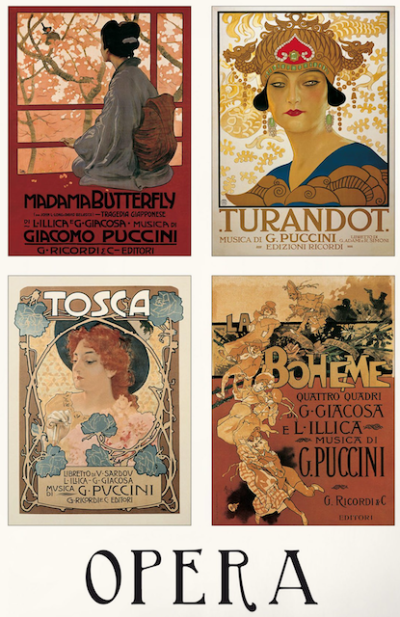

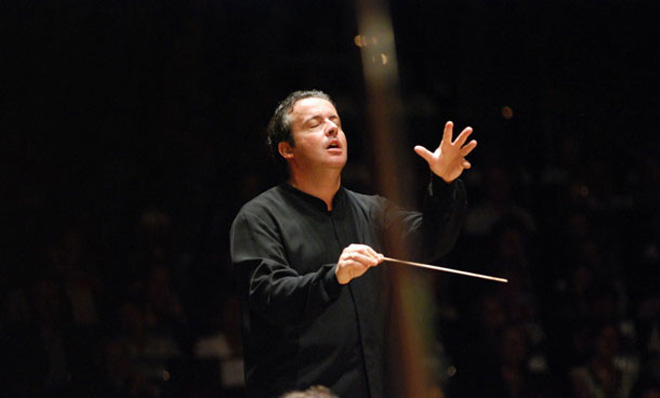
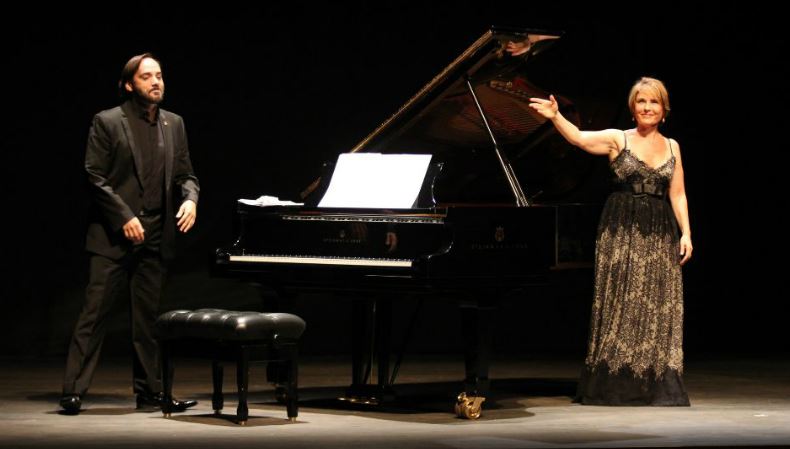

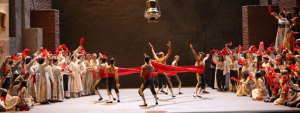

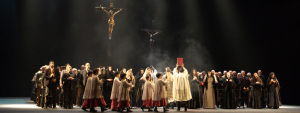
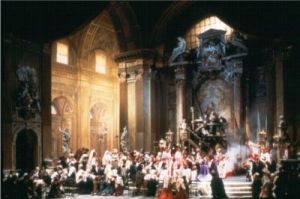
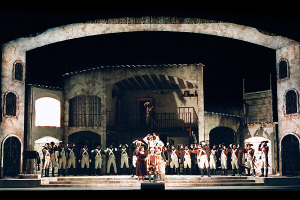
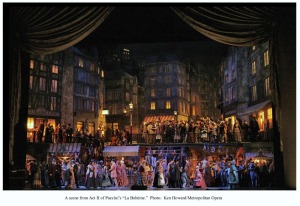
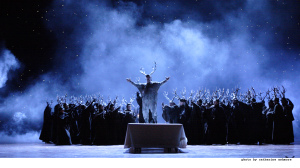
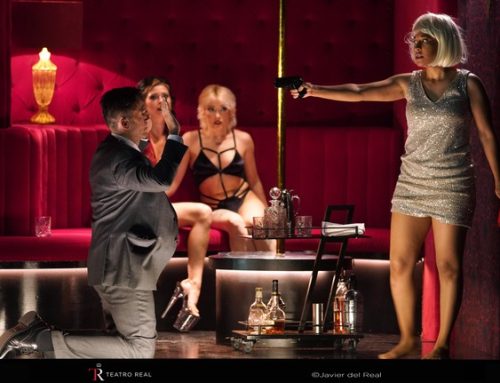
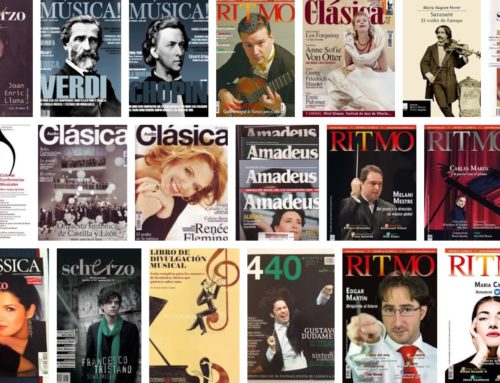
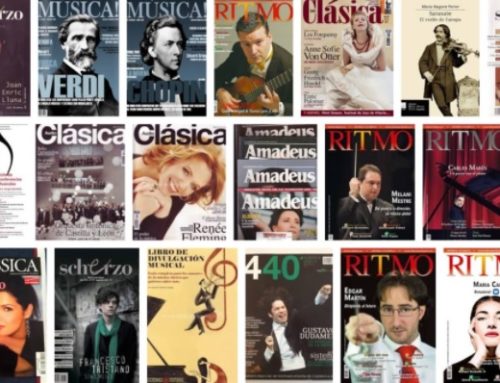
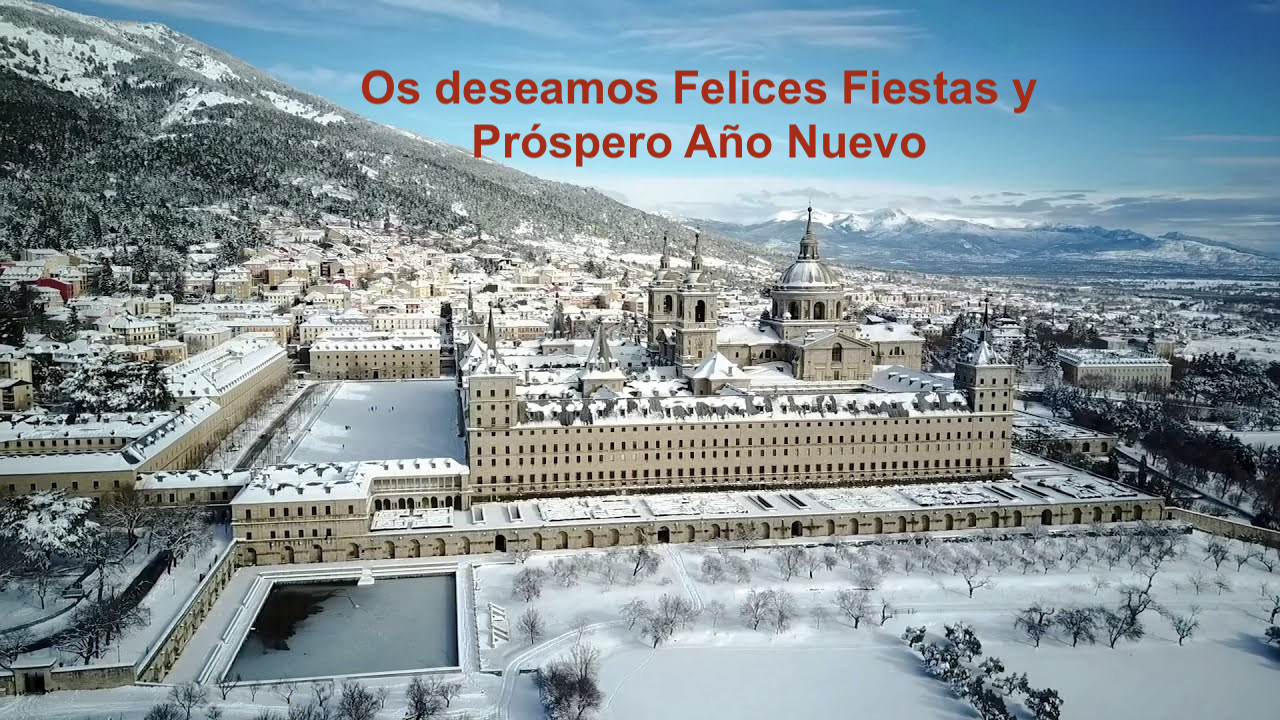
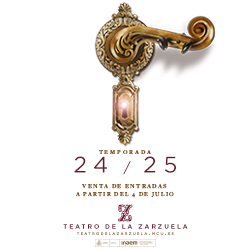

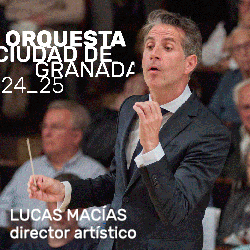
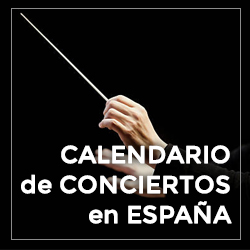
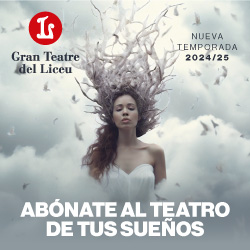





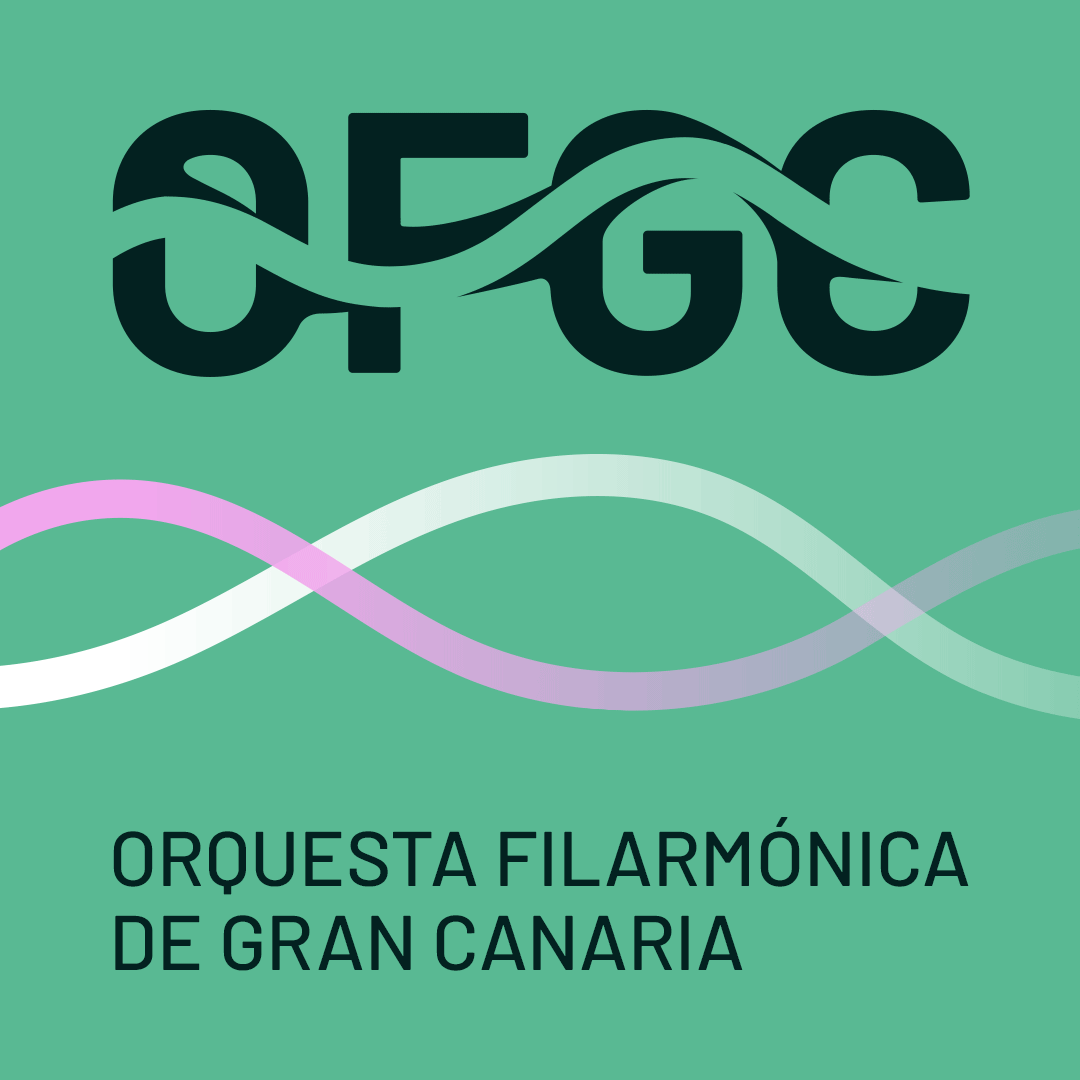



Últimos comentarios